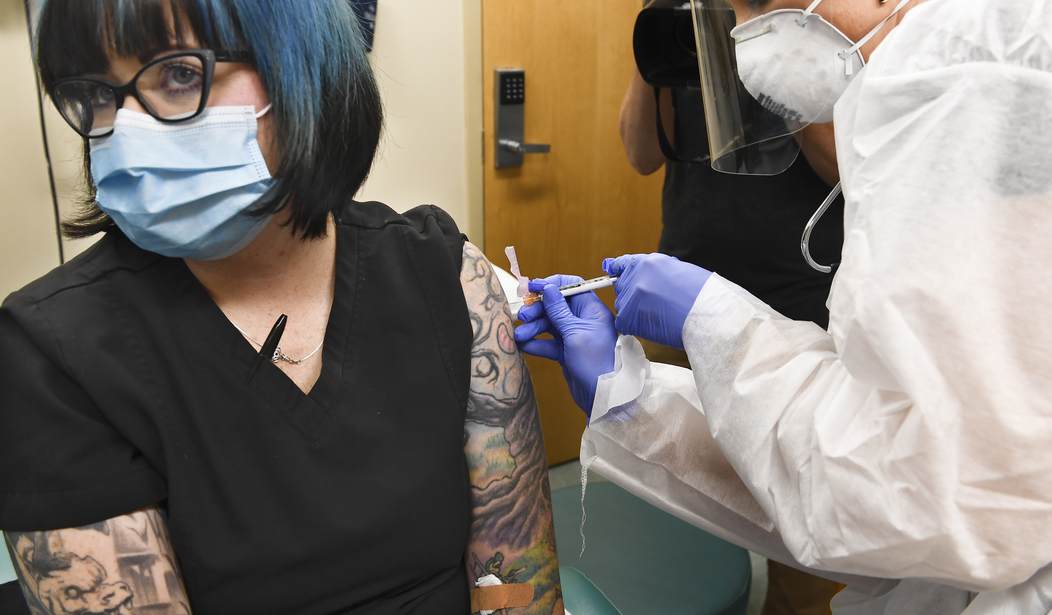I really thought this issue was mostly behind us last month, but it’s apparently still being monitored. Back on April 13, the CDC called for a halt to the use of the Johnson & Johnson vaccine after six women developed severe blood clots following the administration of the dose. That “pause” lasted for ten days and was then lifted when it was determined that “the benefits outweighed the risks.” Now they’ve updated that information. It turns out that there were more than six women who experienced this effect, though it’s still a microscopic number out of the millions that received the J&J vaccination. But for those who experienced it, it was indeed serious. In fact, three of them didn’t survive it. (CNBC)
CDC scientists say their investigation into a rare blood clotting issue linked to the Johnson & Johnson Covid-19 vaccine has identified 28 people who developed the potentially life threatening blockages — three of whom have died.
The Food and Drug Administration and Centers for Disease Control and Prevention on April 13 asked states to temporarily halt using J&J’s vaccine “out of an abundance of caution” while it investigated six women, ages 18 to 48, who developed cerebral venous sinus thrombosis, or CVST, in combination with low blood platelets within about two weeks of receiving the shot.
They recommended resuming use of the shot ten days later after the CDC determined that the benefits of the shots outweighed their risks.
28 people developed cerebral venous sinus thrombosis (CVST) out of an estimated 8.7 million people who have gotten the J&J shot as of this week. That’s nowhere near a statistically significant level. Of course, that’s not much comfort to the people who experienced it, particularly the families of the three patients who died.
I’m left wondering, however, if they have conclusively determined that the clots were directly caused by the vaccine. Johns Hopkins informs us that approximately 5 people out of a million develop CVST each year in America. If that’s the typical average, and nearly 9 million people have gotten the J&J vaccine, we might expect more than 40 of them to have experienced this type of blood clot whether they were vaccinated or not. Could this just be a coincidence?
Obviously, I’m not a doctor and wouldn’t have the first idea of how they test for such things. But it still doesn’t sound as if there’s a justifiable reason to scrap the J&J doses. Even if someone starts developing CVST symptoms (severe headaches or sharp pains in the extremities), as long as they seek medical attention immediately, it appears that their odds of survival are pretty high. Though it might be wise for women to steer toward the Pfizer or Moderna vaccines just out of an abundance of caution because this particular side effect doesn’t seem to show up in men.
The net impact for Johnson & Johnson may come more in terms of their bottom line, however. As long as these headlines keep showing up, along with information about their vaccine’s efficacy rate being so much lower than the other two choices, some people will still seek out the Pfizer and Moderna vaccines. And that trend has already impacted their stock prices. I’ll confess that if the pod we went to had only offered J&J, I would have waited or gone elsewhere. And I personally know others in our neighborhood who said they had made the same decision. But hey… it’s still a lot better than AstraZeneca, right?








Join the conversation as a VIP Member